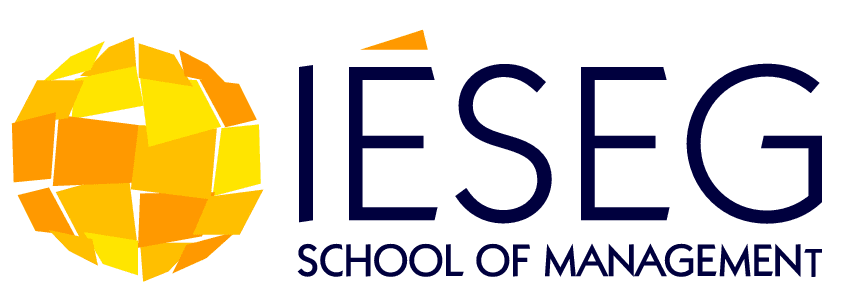PhD Thesis Proposal – Multi-agent modeling and dynamic optimization of recycling networks
Context:
Recycling value chains in France and Europe face significant challenges due to the diversity of actors involved, the fragmentation of management systems, the heterogeneity of material flows, and increasing economic and regulatory constraints. This structural complexity is further amplified by the interdependence of processes, variability in available resources, and the growing need for industrial and technological sovereignty. While the literature on the circular economy is extensive, much of the existing research remains focused on local process optimization (e.g., energy efficiency, waste reduction, yield improvement) or on individual actors, without fully addressing the systemic dynamics and multi-scale interactions required to build robust and resilient recycling networks.
To address these challenges, recent studies emphasize the need to move beyond siloed approaches and develop systemic models capable of integrating the entire product life cycle, delayed decision feedback, sector-specific constraints, and multi-level governance mechanisms. These approaches must consider not only the physical and economic characteristics of materials but also the collaborative dynamics between heterogeneous actors, the uncertainty of material flows, market unpredictability, and the rapid evolution of technologies and regulations.
RegeNexus‘ Problem Statement:
RegeNexus project proposes an innovative approach to structuring and managing recycling value chains as dynamic, interconnected, and territorially embedded networks. Based on Systems of Systems (SoS) engineering, the project aims to overcome the limitations of local optimization by integrating multi-level interactions, complex feedback loops, and sector-specific constraints. This vision facilitates the coordination of actors with potentially divergent goals, while providing the flexibility needed to respond to the uncertainties of material flows and the rapid changes in market and regulatory conditions. Digital sciences play a central role in this approach, providing the methods and tools needed to model, simulate, analyse, and orchestrate these complex networks while integrating technical, economic, environmental, and social constraints. The main research axes of the project include:
Multi-scale control: Integrating decision-making from the nano (material, product) to the macro (territorial or national strategy) levels, accounting for complex interactions and delayed impacts.
Flow traceability: Using digital twins to model and monitor material flows throughout their life cycle, providing increased transparency for industrial stakeholders.
Uncertainty management: Developing robust tools based on artificial intelligence, machine learning, and data fusion to handle heterogeneous, incomplete, and uncertain information.
Flexibility and adaptability: Leveraging digital platforms and simulation tools to enable rapid adjustments to market, regulatory, or material availability changes.
Dynamic orchestration: Coordinating data flows and real-time decision-making to optimize the overall performance of value chains.
Subsystem autonomy and coordination: Ensuring interoperability between actors while maintaining their autonomy through distributed, reconfigurable architectures.
Hyperspectral analysis and material sorting: Developing advanced material characterization technologies, such as hyperspectral imaging and deep learning, to improve sorting, separation, and regeneration of complex materials.
Research Problem Addressed in this Thesis:
This PhD project will focus on multi-agent modeling and dynamic optimization of recycling networks using advanced modeling, optimization and simulation tools. The core challenge lies in modeling the dynamic interactions and strategic behaviors of diverse stakeholders—including households, municipalities, contractors, and inter-municipal organizations—each with distinct and evolving objectives. The candidate will develop agent-based models that incorporate behavioral dynamics, policy responsiveness, and uncertainties in waste generation, regulation, and operational constraints. These models will then be embedded in an optimization framework powered by stochastic and/or robust optimization techniques to guide collective strategic decisions.
State of the Art:
Traditional forecasting and planning tools in waste management often rely on static, top-down approaches that do not sufficiently capture agent heterogeneity or emergent system-level dynamics. Recent advances in agent-based modeling (ABM), machine learning (ML), and robust optimization have shown promise in representing these complexities. However, few integrated frameworks exist that combine these approaches within a recycling policy context. Moreover, current models struggle to reflect territorial specificities and real-time adaptability to changes in regulation or behavior. This thesis seeks to build on recent literature in multi-agent systems, optimization and stochastic or robust modeling, adapting them to the context of recycling flow governance in complex territorial networks.
Scientific Challenges:
The project addresses several key scientific challenges:
Modeling heterogeneous decision-making behaviors across agents in a dynamic and uncertain policy environment
Integrating agent-based simulation with optimization frameworks to enable policy scenario evaluation
Managing uncertainties related to material volume, seasonal variation, behavioral responses, and regulatory shifts
Developing scalable methods that accommodate both strategic and operational decision layers.
Action Plan:
To achieve the objectives of this PhD, the following plan will be followed:
Literature Review: Conduct a comprehensive review of agent-based modeling, stochastic and robust optimization, and decision modeling in the context of circular economy and waste management.
Agent-Based Model Development: Design and calibrate a multi-agent simulation of stakeholder interactions based on empirical and theoretical frameworks.
Integration with Optimization Frameworks: Embed the ABM within a robust/stochastic optimization framework to evaluate strategic policy outcomes under uncertainty.
Territorial Case Studies: Apply the integrated model to selected territorial contexts to assess its performance and scalability.
References:
Foussard, E., Espinouse, M. L., Mounié, G., Nattaf, M. (2021), A Lot-Sizing Model for Maintenance Planning in a Circular Economy Context, APMS 2021 – Advances in Production Management Systems. Artificial Intelligence for Sustainable and Resilient Production Systems, Nantes, France. pp.673 – 682, DOI : 10.1007/978-3-030-85902-2_72
Gutierrez-Lopez, J., McGarvey, R. G., Costello, C., & Hall, D. M. (2023). Decision support frameworks in solid waste management: a systematic review of multi-criteria decision-making with sustainability and social indicators. Sustainability, 15(18), 13316.
Rizzati, M., & Landoni, M. (2024). A systematic review of agent-based modelling in the circular economy: Insights towards a general model. Structural Change and Economic Dynamics.
Shoham, Y., & Leyton-Brown, K. (2008). Multiagent Systems: Algorithmic, Game-Theoretic, and Logical Foundations. Cambridge University Press

